Long Frozen Organisms in the Arctic Awakened, Hinting at Life on Other Planets
In recent years, researchers have reawakened life in frozen organisms in the Arctic permafrost, bringing them back to life. These studies are now challenging accepted ideas as to the resilience of lifeforms, indicating the future of the environment after global warming, and even the chances of life on other planets. They have revived moss and even worms that had been assumed dead in glaciers and in the frozen earth but are now often being revealed by thawing glaciers.
Moss Revival After 150 Years
In 2009, Catherine Le Farge, an evolutionary biologist, and her colleagues were working at the edge of a massive glacier known as the Teardrop, in Northern Canada. She came across a number of specimens of moss “of the species Aulacomnium turgidum finally free from its icy entombment,” according to Stuff. There were some green tints on the plant, even though it had been frozen in ice since the mid-19th century.
This material was presumed to be dead but the verdant hues on the moss indicated to Le Farge that this was something worth investigating. She decided to bring the samples back to her University in Edmonton and placed them in nutrient-rich soil in a bright and warm environment. After a period of time, a number of the mosses came into leaf, despite being ‘dead’ for over a century. Le Farge is quoted by Stuff as stating that "We were pretty blown away."
The moss had desiccated in the extreme cold and this meant that it did not become frozen solid. Typically, ice can form in the tissues of living and dead organisms and this means that it “can shred cell membranes and other vital biological machinery” according to Stuff. This unique biological characteristic of moss meant that it could be revived.
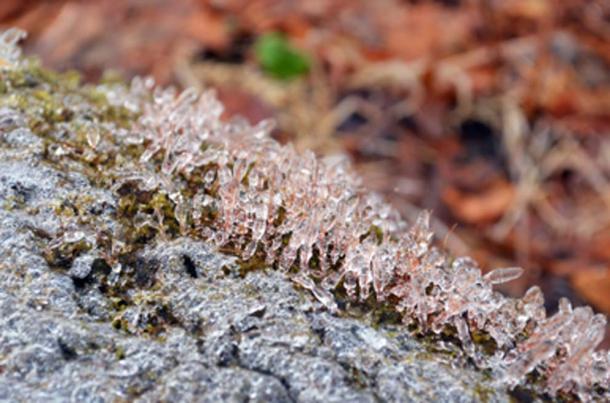
Frozen lifeforms, such as the moss, have been successfully revived. (angelacina1 / Public Domain)
Frozen Worms Awakened
Following on from the work of Le Farge and her colleagues, other scientists have begun to revive frozen organisms. Peter Convey and his team from the British Antarctic Survey have “awakened a 1500-year-old moss buried more than three feet underground in the Antarctic permafrost,” according to Annith. It appears that the frozen ice can preserve the mosses from environmental damage and the radiation that can lead to the break-down of their DNA and preserve the plants.
Researchers have been able to renew and bring to life bacteria and complex multiple cell organisms that have been entombed in glaciers. One of the most exciting instances of this is the work of Tatiana Vishnivetskaya, from the University of Tennessee, on nematodes (roundworms), that are thousands of years old and were found in the Tundra of Siberia.
She announced an ‘accidental discovery’ when she was working with the organisms in Petrie dishes says Stuff. The scientist saw the worms reawakening, even though they had been frozen for thousands of years. Her work has shown that it is not only a simple organism that can survive in the brutal environment of extremely low temperatures.
- Ancient mega-virus that does not resemble any virus on Earth is set to be revived
- Otzi's non-human DNA: Opportunistic pathogen discovered in ancient Iceman
- Could Resurrecting Mammoths Help Stop Arctic Emissions?
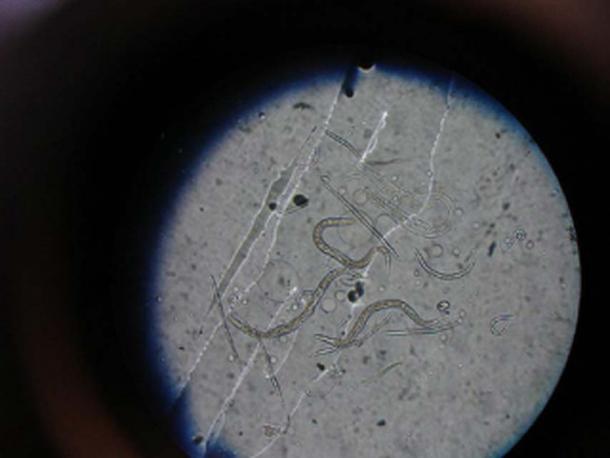
Researchers have revived frozen lifeforms from the Arctic, such as worms. (John Donges / CC BY-SA 2.0)
The recent research has shown that desolate areas like the Arctic are not just dead zones. Instead, it appears that “glaciers and permafrost are not merely graveyards for multicellular life” according to Stuff. It is also showing that a select few species have great resilience.
It also appears that some organisms can wait for a more favorable environment as part of their survival strategy. They are able to stay literally frozen in time or become ‘zombies’ until conditions mean that they can be revived.
What Does This Say About Life on Other Planets?
Some believe that the ability of organisms to survive in the extreme cold can have repercussions for the possibility of life on other planets. If lifeforms can survive in a glacier could they not also survive in apparently desolate and uninhabitable worlds? The resilience of certain organisms may make it more probable that life may exist elsewhere in the universe.
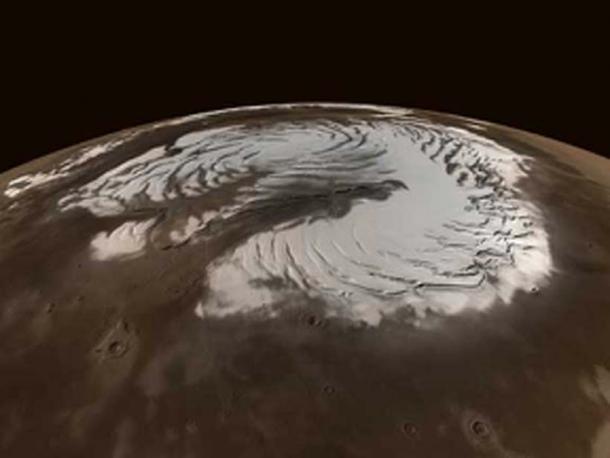
Northern polar ice cap on Mars. Does the ice hold frozen lifeforms? (Fabio Bettani / Public Domain)
The discovery that some organisms can survive in the extreme cold can help us understand how areas, which are now frozen, may look after global warming. As the glaciers and permafrost thaws and retreats, it means that something that can survive in the ice can re-colonize the environment. For example, mosses can flourish once again and prepare the way for other plants and even animals to colonize formerly frozen lands.
The studies by Le Farge, Covney, and others are demonstrating that ancient life can be renewed and the resilience of some forms of biological life. This is very positive given the growing concerns over the environment. The research may give hope that life will be able to survive even the impending environmental disasters predicted by many scientists and environmentalists.
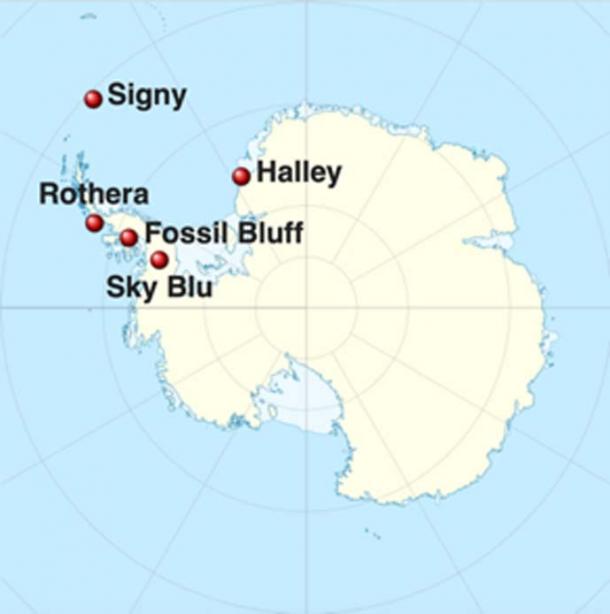
BAS, the team studying the frozen lifeforms, research stations in the British Antarctic Territory. (Ravenpuff / CC BY-SA 3.0)
Top image: Ellesmere Island Canada where researchers are reviving frozen lifeforms. Source: James / Adobe Stock.
By Ed Whelan


















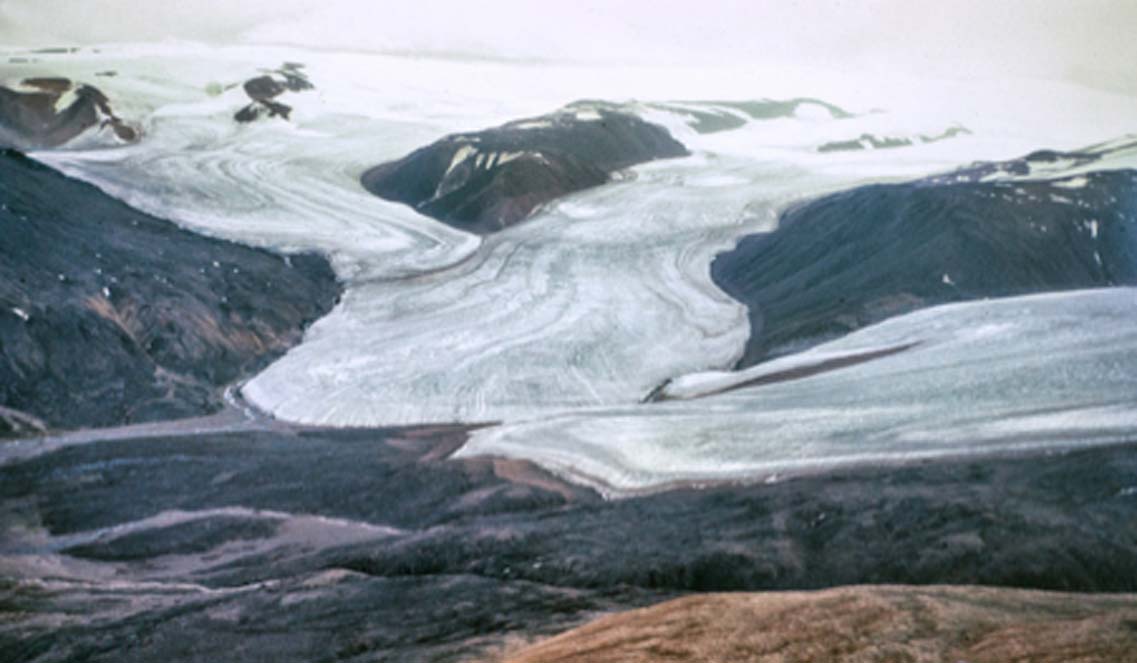

Comments
Whew! That's a relief. I thought that I was the only one who regards the Pink Floyd song "Astronomy Domine" as prophecy. But wait, wasn't that queen mother serpentine alien creature also frozen stiff in Antarctica who was depicted in the film "Alien Vs. Predator?"